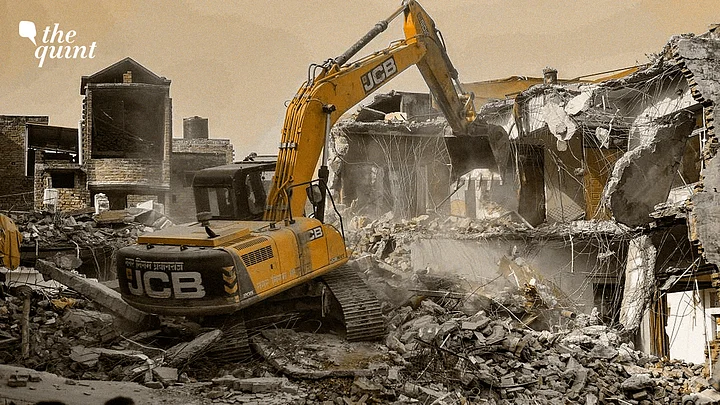(Extracted with permission from Unsealed Covers: A Decade of the Constitution, the Courts, and the State by Gautam Bhatia, published by Harper Collins. Paragraph breaks have been added for readers’ convenience.)
Ongoing proceedings before the Supreme Court pertaining to the spate of home demolitions, which have been carried out across the country by municipal authorities, present a striking example of how judges can continuously reject the evidence of their eyes and ears. These proceedings follow a similar pattern. It is pointed out to the court (as we have discussed previously) that the home demolitions—which have now been going on in a sporadic fashion for many months—are punitive and designed to extract retribution for participation in protests.
The state counsel argues that the municipal authorities are acting in accordance with local laws. The Supreme Court bench—it tends to change—makes a rhetorical statement about how demolitions must follow the legal process, makes another rhetorical statement about how it can't pass 'omnibus' orders against the demolitions, and then adjourns the case, as it did today (while the demolitions continue).
In continuously refusing to take cognizance of the fact that the home demolitions are punitive and illegal and follow the same pattern across the country, these Supreme Court judges reject the evidence of their eyes and ears.
They manage to ignore the fact that, coincidentally, the home demolitions in question come immediately on the heels of a protest that turns violent, time after time, and are specifically targeted against people who are named by the police in FIRs about rioting; that in Uttar Pradesh, Javed Anand's home was demolished one day after the UP Police claimed that he was the 'mastermind' behind the 10 June riots, and that in Khargone (MP), Khambhat (Gujarat), Nagaon (Assam), Jahangirpuri (Delhi) and in other places, the exact same pattern is followed (indeed, in Jahangirpuri, demolitions swiftly followed a letter from the BJP leader to the mayor, asking for bulldozer action against 'illegal properties of the rioters').
Not only that, these Supreme Court judges reject the evidence of their eyes and ears, where the punitive action is laid bare by agents of the state.
A non-representative sample includes, for example, statements by the home minister of Madhya Pradesh in the wake of the Khargone riots, that the 'demolition drive against rioters would continue'; a statement by the divisional commissioner, Indore, that 'the main idea behind the move is to instil fear of financial losses among the accused'; the Khargone district collector telling journalists that the demolitions were done to 'send a message to rioters'; multiple other statements by Khargone officials, collected here, a statement by the district administration in Khambhat, Gujarat, that 'the encroached properties belonging to the accused are being demolished'; the SDGP in Nagaon, Assam, telling journalists that 'some of the suspects [involved in a riot] had encroached upon land...the eviction drive was carried out after a case was registered against them'; and this tweet by the media adviser to the government of UP, with an image of a destroyed home, and the caption 'उपद्रवी याद रखें, हर शुक्रवार के बार एक शनिवार जरूर आता है...'.
Examples could be multiplied, but what is abundantly clear is the two-faced character of the state. To maintain the veneer of legality, in its formal orders, the state claims that the demolitions are following due process and that the action has nothing to do with retribution. These are the arguments that the state's counsel then makes in court.
Quite apart from the fact that these arguments fail on their own terms, the basic point is thus: The only way that you can accept the state's arguments—pace Orwell—is if you choose to reject the evidence of your eyes and ears—not once, not twice, but every single time that state agents engage in targeted demolitions after protests, publicly brag about 'teaching the rioters a lesson, and then send their lawyers to argue in court that the demolitions have nothing to do with the protests.
(Gautam Bhatia is a lawyer and an author.)
(At The Quint, we question everything. Play an active role in shaping our journalism by becoming a member today.)
